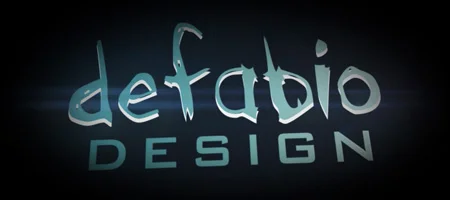Last week I was at the Global Genes conference for advocates of rare diseases. Hope was not only a theme or a tagline there, it percolated through even the most dire discussions of the roads ahead. For many facing a rare diagnosis, the road to hope (of treatment or a cure) goes a bit like this: identify a patient population, identify a gene, fund research, get a clinical trial, then phase 1, phase 2, 3 etc. For my son’s rare disorder Menkes disease, I suppose we’re fortunate to be pretty far down that road. We know the gene, have a clinical trial, have a treatment.
If you have a disorder rare enough to be in need of treatment through a clinical trial, you’ve likely been through some version of hell. You have a disorder with no proven safe treatment. Somehow after getting the dire news of your rare diagnosis you found out that your last best hope is through a clinical trial. Your journey to get a diagnosis undoubtedly had its own scares and worries, and shining like the light at the end of your dark tunnel comes the word: there’s a clinical trial for this disorder, and you might qualify.
And it gleams like hope, your hope against hope. It shimmers like the Emerald City of Oz. Where just a day or two before you felt there was nothing to be done and no where to turn — your hell, like Dante’s had a sign reading “Abandon All Hope Ye Who Enter Here” — now the golden path unfolds before you. You need to go see the Wizard; he can help.
Until this moment you’ve probably been researching and hitting dead ends. Your local doctors have admitted to being out of their depth on this condition. Your friend knew a specialist you should talk to. You did and she turned out to be a specialist in not exactly what you need. When at last you’ve found the expert, the one to whom all the other doctors defer on this disorder, it feels like reaching the happy end of a long quest.
I don’t want to dash anyone’s hopes who may be on the road trying to get a clinical trail for their disorder.
But the clinical trial isn’t the end of the quest, and it may not be happy. Entering the clinical trial, like entering Emerald City, may bring you help, but it will likely bring you some disillusionment too. And the help you get might be far different than the help you were seeking. You’re starting a new journey as a trial participant, and it might be helpful if the office had a sign like Dante’s. Perhaps it should read “Abandon Some Hope” or “Here be Dragons” as they used to mark maps to indicate unknown perils. At the very least they could underline the word “trial” in clinical trial. Double underline it.
Here’s why: you made this journey to get treatment, ideally a cure. But whatever treatment is on offer may not work in your case or in any cases. Or you might be in the placebo group and not get any real treatment at all. This is not to fault the clinical trial system. It needs to work this way if it’s going to work at all. But the patients expectations (and hopes) are often higher or misaligned when they begin the process.
I’m reminded of this excellent formula I first saw in an article on why millennials are unsatisfied.
Happiness = Reality – Expectations
I’ve written about adjusting our expectations in light of my son’s diagnosis, but even so we didn’t properly calibrate our expectations of a clinical trial.
The biggest revelation I had was that my son was not so much being treated as he was being studied. Yes, he did get treatment as part of the deal (unless he was in the placebo group), but the bigger picture saw him as one of many data points that might lead to a better treatment or a cure several years down the road. That is to say we could ease on down that sometimes scary road toward a cure, but the happy ending would be for someone else’s child.
For my wife and I it was so much like meeting a great and powerful wizard only to later pull back the curtain and discover he is an ordinary man. No doubt a brilliant scientist, but still a fallible man and not a miracle worker. Perhaps your researcher is overworked or underfunded or just unable to speed the progress toward a cure to when you needed it. We needed it yesterday, and even a wizard isn’t a time traveler. And that’s when our unrealistic hopes deflated. No balloon would carry us away from our troubles.
Even so, hope creeps back in; maybe this wasn’t our last hope, there might be another clinical trial for our disorder sometime soon.
I hasten to add we have no regrets. Armed with our more informed understanding of what a clinical trial could and could not offer, we remain glad and proud to have been a part of it. If no cure could come in time for our child perhaps our child could play a part in finding the cure for the next child.
We were able to pull back the curtain and see that our researcher was a very good man. We just should have never expected him to be a wizard.
As published on The Mighty: http://themighty.com/2015/10/when-the-last-best-hope-ln-your-rare-disease-journey-lets-y0u-down/#ixzz3oZFDkQDg
